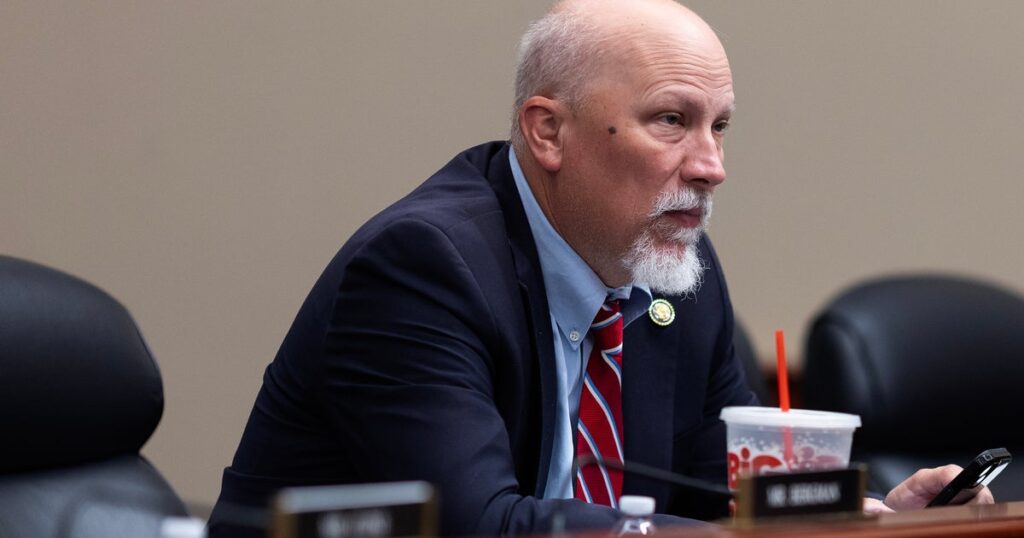WASHINGTON ― Republicans’ “big, beautiful bill” went down in a big, ugly flop as conservatives voted against the measure in the House Budget Committee on Friday.
The bill failed by a vote of 21–16, with all Democrats and five Republicans on the committee voting no. The Republicans said they would negotiate through the weekend on changes that could win their support.
The vote was a significant setback for President Donald Trump and House Speaker Mike Johnson (R-La.), but it’s entirely possible Republicans will regroup and push the bill through the committee on Sunday evening, when they plan to try again.
The “One Big Beautiful Bill Act” would cut food and health care programs by $1 trillion to help pay for nearly $5 trillion in tax cuts, representing the chief domestic policy goal of Trump’s second term.
Conservatives want the cuts to go deeper and warned Thursday they would vote against the bill during committee action on Friday, but Speaker Johnson pressed forward anyway in hopes of passing the bill through the House by Memorial Day.
On Friday morning before the vote, Rep. Ralph Norman (R-S.C.) indicated he was still unhappy with the bill despite ongoing negotiations with leadership.
“All of us are very disappointed in the progress, or lack of,” Norman told reporters.
Rep. Chip Roy (R-Texas), another hard-liner, suggested the committee take a break instead of proceeding to the vote. He spoke out against the bill during the committee meeting.
“I’m not going to sit here and say everything’s hunky-dory,” Roy said, lamenting that federal budget deficits would continue to grow if the legislation passed, and that its “work requirements” for able-bodied Medicaid recipients wouldn’t kick in until 2029.
Norman and Roy were joined by Reps. Josh Brecheen (R-Okla.) and Andrew Clyde (R-Ga.). (Pennsylvania GOP Rep. Lloyd Smucker also voted no, but only because doing so makes it easier to bring the bill back for a second vote under House procedures.)
The four GOP lawmakers who opposed the bill are members of the House Freedom Caucus, a hard-right coalition that said in a statement after the vote that its members would keep working.
“We are not going anywhere and we will continue to work through the weekend,” the Freedom Caucus said in a statement.
Their overarching complaint is that the bill does too little to reduce federal budget deficits. More specifically, they want Medicaid work requirements to start earlier than 2029, as would happen under the bill’s current text, and they want a more rapid phaseout of green energy tax credits than the bill currently envisions. The Medicaid work requirements would likely cut enrollment by millions.
A problem for Johnson is that if he agrees to change the bill in conservatives’ favor, he could lose support from moderate lawmakers opposed to steeper cuts. One of those, Rep. Don Bacon (R-Neb.), said he didn’t mind moving up the work requirements, however.
Trump tried to bolster support for the bill after posting angry comments about musicians Taylor Swift and Bruce Springsteen.
“We don’t need ‘GRANDSTANDERS’ in the Republican Party,” Trump wrote on Truth Social Friday morning. “STOP TALKING, AND GET IT DONE! It is time to fix the MESS that Biden and the Democrats gave us.”
Even if the hard-liners get on board, and the moderates can stomach their demands, Speaker Johnson will still have to win over another group of moderates upset that the bill doesn’t enlarge a tax deduction for wealthy homeowners in high-tax blue states like New York and California. Johnson said Thursday he was prepared to negotiate on the state-and-local tax issue, known in Washington as SALT, all weekend.
Rep. Nick LaLota (R-N.Y.) said Thursday afternoon that little progress had been made after he and other SALT Republicans balked at lifting the limit on the deduction from $10,000 to $30,000. LaLota’s group wants a higher number.
“Still a lot of specifics that need to be hashed out,” LaLota said. “We are asking for our fair share.”
House Budget Committee Chair Jodey Arrington (R-Texas) said the failed vote will help Republicans finish the bill.
“Today was a deadline and a decision, and it’s one of the decision points to get us to the successful passage of the reconciliation rule,” Arrington said.
“I think it provides clarity, better clarity on where people stand.”


